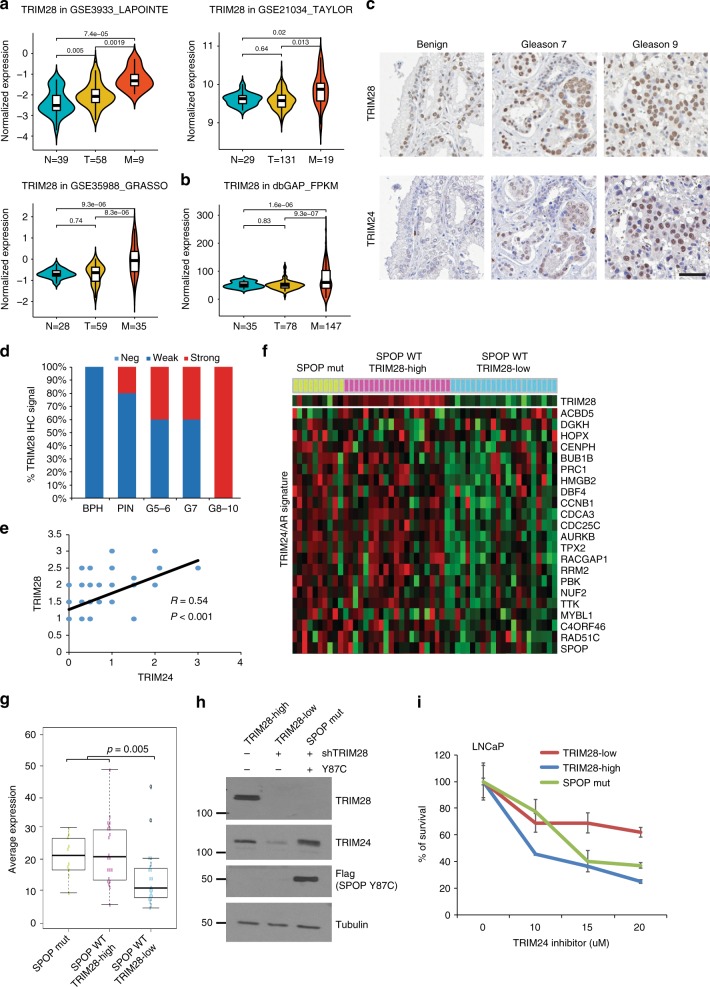Fig. 6.
TRIM28 is upregulated during PCa progression. a, b TRIM28 expression levels in benign adjacent (N), localized PCa (T), and metastatic CRPC (M) in publically available prostate cancer microarray profiling datasets (GSE35988, GSE3933, GSE21034) (a). RNA-seq data (b) from three dbGAP PCa dataset4,55(phs000915.v1.p1, phs000909.v1.p1, and phs000443.v1.p1) were compiled based on FPKM (fragments per kilobase per million reads). Elements in Violin boxplot: horizontal black line = the median, inside box = interquartile range, whiskers = 95% confidence interval, shape of the violin = frequencies (density plot width) of values, upper and lower needles = the maximum and minimum values. c–e TRIM28 expression is elevated in aggressive PCa. Human PCa progression tissue microarray were used for immunohistochemistry staining. Representative staining images were shown (c). TRIM28 staining by Gleason Scores was summarized by histogram (d) and its correlation with TRIM24 staining determined in (e) using Pearson method (test for association/correlation between paired samples). Scale bar = 50 µm. f, g TRIM24/AR coactivated genes induced in PCa with either SPOP mutation or TRIM28 elevation. SU2C RNA-seq dataset of 150 CRPC samples4 were obtained from cBioportal. Exome-sequencing data of each sample were examined to identify the subset with SPOP mutations (SPOP mut, n = 10). The rest of the samples that are SPOP wild type (WT) were further stratified based on their RNA-seq data into TRIM28-High (ranked top 20% in TRIM28 expression, n = 21) and TRIM28-Low (ranked bottom 20%, n = 21). Heatmap (f) shows clustered TRIM24/AR coactivated gene expression in these 3 categories, while boxplots (g) depicts average expression of these genes. Statistical difference was assessed by Student’s T-test. Elements in boxplot: Upper whisker = max value excluding outliers, upper bound of the box = 3rd quartile, central line = median, lower bound of the box = 1st quartile, lower whisker = least value excluding outliers. h, i PCa with SPOP mutation or TRIM28 elevation are sensitive to TRIM24 inhibitors. LNCaP cells (SPOP WT) were transduced with lentivirus containing pLKO, shTRIM28, or shTRIM28 along with SPOP-Y87C-SFB (h). These cells were then treated with increasing doses of TRIM24-bromodomain inhibitor (TRIM24-C34) for 14 days and measured for cell survival in colony formation assays (i)

